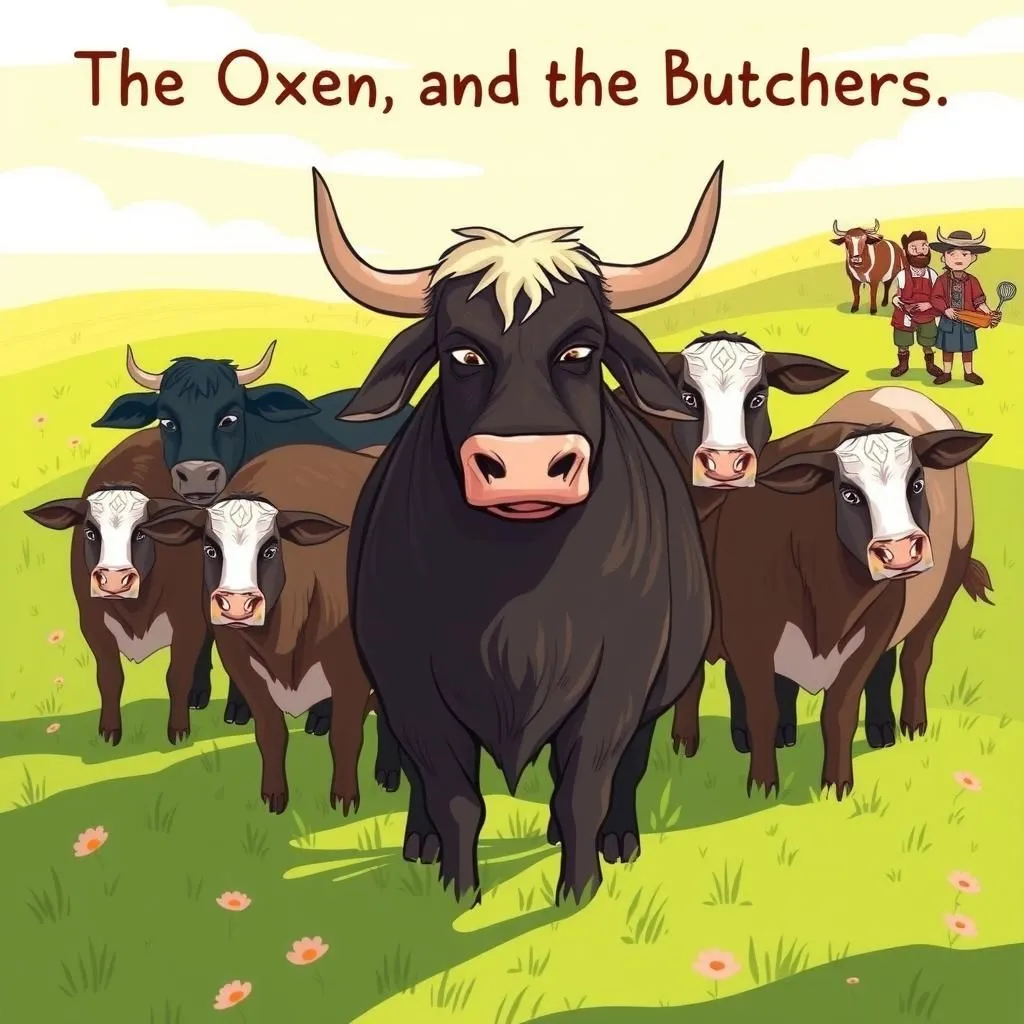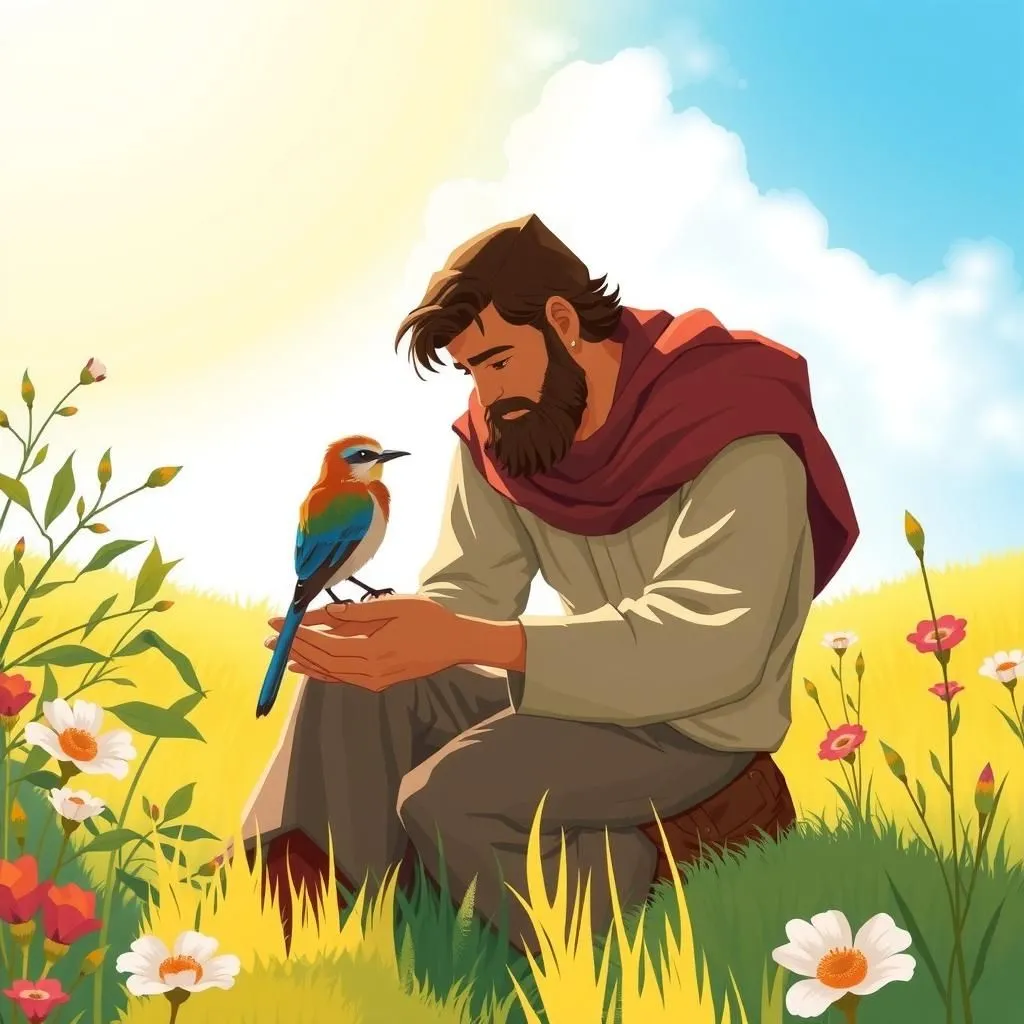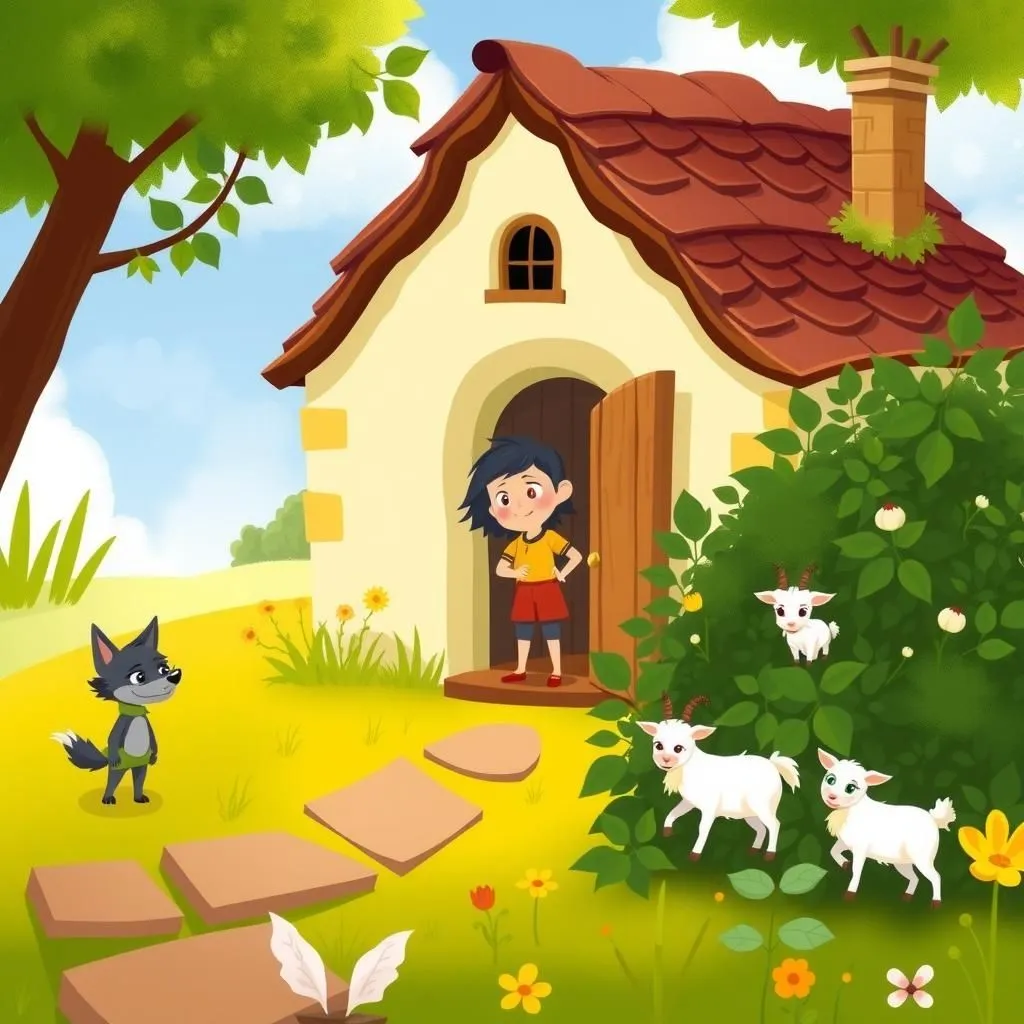
The Oxen and the Butchers
In "The Oxen and the Butchers," a group of Oxen, seeking to overthrow the Butchers who kill them, are cautioned by an elder Ox about the potential consequences of their actions. He argues that while the Butchers do cause them suffering, their skilled butchery ensures a more humane death than the brutality of unskilled operators, highlighting a moral lesson about the dangers of hastily exchanging one evil for another. This captivating moral story serves as a reminder that not all changes lead to better outcomes, making it a meaningful addition to any collection of short stories with moral lessons for adults.


